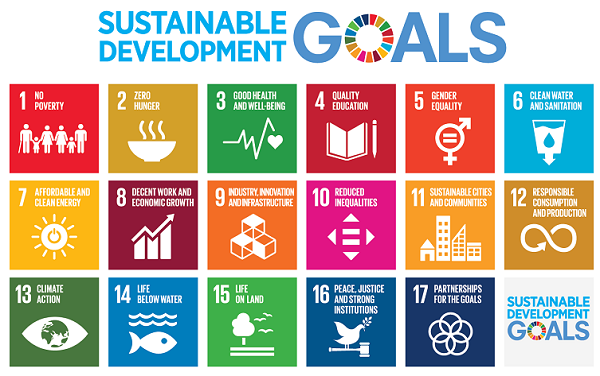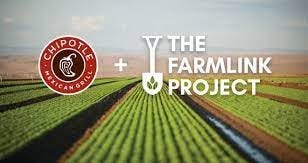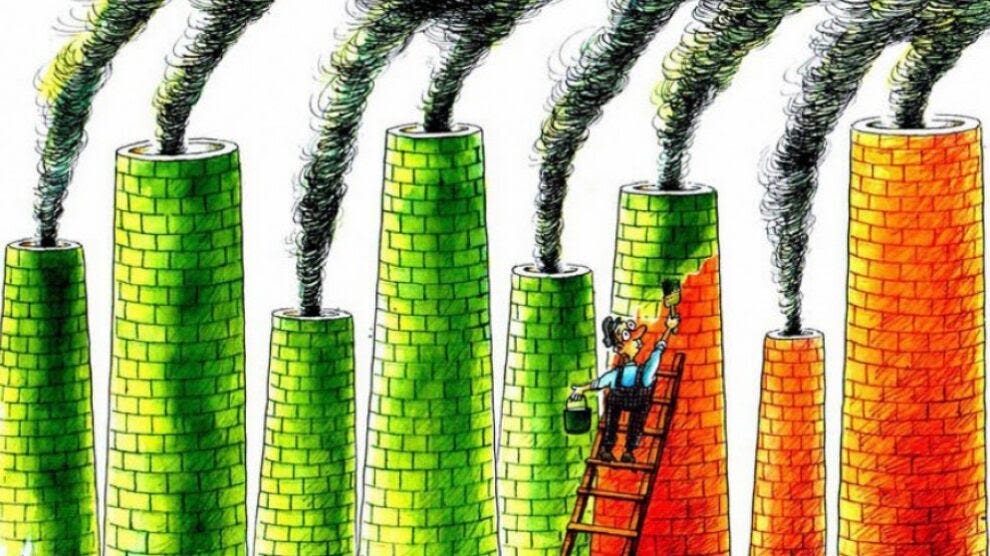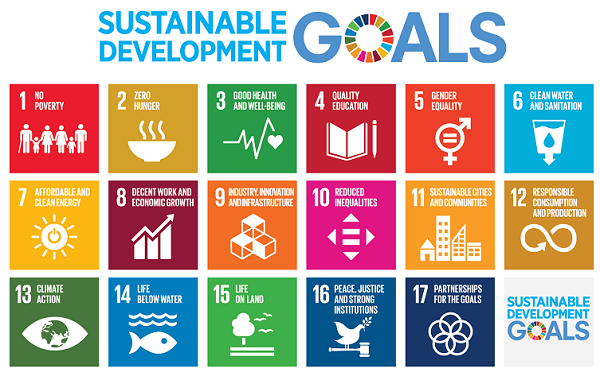Good morning,
This is another one of the Strategy Management and Sustainability newsletters that was curated by students of the “Strategy Management Course” at UC3M.
In today's edition, we look at the topic of sustainable business models and greenwashing.
How can companies make their business models more sustainable and what does the future hold for them? We also explore the question of which companies are leading by example and which are just pretending to be in the course of greenwashing.
At the end of the article you will find some suggestions for those who want to learn more about sustainability and the topics of the newsletter.
Enjoy reading and learning!
By: LaToya, Billie, Vanesa, Tilde, and Niclas
Today's newsletter is 1537 words, a 6-minute read.
The following companies are mentioned:
Burger King
McDonalds
Chipotle
Fiji
Sustainable Business Model
Source: BUSINESS MODEL CANVAS | Marco Giusti (mginteraction.com)
Sustainability is a hot topic these days. To win the 20’s, companies need to think differently about the way they are delivering capitalism in the world. Companies need business models that are much more aligned with the broader set of both customers' needs, employee needs, and our environmental needs at this point.
A business model is basically how a company creates value for itself while delivering products and services for its customers. Sustainable business models also create economic, social, and environmental value for a much broader range of stakeholders.
The Business Model Canvas breaks your business model down into easily understood segments: Key Partners, Key Activities, Key Resources, Value Propositions, Customer Relationships, Channels, Customer Segments, Cost Structure, and Revenue Streams. This tool is important for both new and established businesses to understand their plan, how they are organized, and how they are making a profit.
Sustainable business should not be about good intentions and bad practices, but it should be about moving towards more effective solutions both locally and globally. Doing business without negatively impacting the environment, community, or society, is hard - but it is also an important and fascinating journey. Continue reading today's newsletter to gain deeper insight into this topic.
Chipotle Sustainability Promise
Chipotle believes that sustainability is a strategic priority. In March 2021, enacted a policy that tied their executive leadership team’s annual bonus to the company’s progress towards achieving their environmental, social, and governance goals.
One of their main sustainable practices are their partnerships with small sustainable farms . They are committed to buying organic and local ingredients. Additionally, they are committed to increasing diversity within their workforce through pay equity and career advancement.
Chipotle in 2020
Bought over 28 million pounds of Organic and Transitional ingredients
Purchased over 31 million pounds of local produce
Increased purchase of organic beans by 1 million from the previous year
They require the farms they purchase form to follow strict animal welfare regulations
Thanks to Chipotle’s partnership with the Farmlink project, over 9.5 million meals were able to be donated to people in need. Chipotle is helping to set the standard for food companies to join in on the fight against food insecurity.
Chipotle commits to developing an internal climate steering committee with a focus on curbing their CO2 emissions. One of the ways they do this is through the implementation of smart energy management systems at all their restaurants.
Burger King: Vegetarian Restaurant
Source: https://www.entrepreneur.com/article/392324
Burger King opened its first 100% vegetarian restaurant in Madrid at the end of October on Paseo del Prado 26 street. The pop-up has been renamed 'Vurger King' and will offer for a month of exclusively vegetarian dishes and drinks, with meat alternatives sourced from the Dutch supplier 'The Vegetarian Butcher' and the entire menu certified with a V-label that ensures the dishes have not come into contact with meat. The idea behind this is not only due to changing consumer behavior (42% of consumers worldwide describe themselves as flexitarians), but especially out of sustainability for the environment, as a lot of carbon dioxide is released, especially in meat production and in times of climate crisis this is a good way to counteract the emission consumption.
To counteract this, the products are made from soy and wheat and all products can be converted into a vegan alternative by omitting the mayonnaise. In an interview, the CEO of Restaurant Brands Iberia Spain and Portugal said, "We want to reach both people who base their diet on vegetable products and those who do eat meat but want to reduce their consumption."
Seeing that such a major player like Burger King is focussing on sustainability shows us that in the future many more companies will follow. For example McDonalds is now forced to follow, because otherwise people will complain about why Burger King has an eye on sustainability and they don't, which will bring McDonalds a competitive disadvantage. If all the big players are moving into the sustainable direction, many small players will do so as well, as the smaller companies have to follow the big ones to survive.
Source: https://unamglobal.unam.mx/greenwashing-las-empresas-nos-hacen-creer-que-son-sostenibles/
Greenwashing
Greenwashing refers to a strategy by which actors seek to create an image of ecological responsibility through the targeted dissemination of disinformation.
Greenwashing uses public relations, rhetoric and manipulation techniques to create a positive perception of a company, its products or activities. For example, companies claim, among other things, to be advancing the eradication of poverty and world hunger, to be trading their products fairly, or to be manufacturing them in an ecological and climate-friendly manner. Common fields include declarations of sustainability, energy efficiency or CO2 neutrality.
An example is dolphin-friendly tuna fishing. The consumer assumes that no dolphins are injured during the catch, even though the logo on the tuna cans offers no security. Every day thousands of dolphins die during tuna fishing.
Another example is the Fiji brand. They advertise their water as "bottled from the source - untouched by man" although this statement could not be further from reality. They fill water into plastic bottles by machine and still manage to build up a green image.
In order not to fall for greenwashing ourselves, we have to learn to question products and offers very specifically. But basically, we as consumers do not have it easy.
But there are a few things that can help us recognize greenwashing more quickly. Paying attention to the exact wording and, of course, it is also worthwhile to take a closer look at the advertising company. It is always a good sign when companies are transparent and provide insights into their work.
Source:


What will happen if business models don't get sustainable until 2030?
If companies don't focus on a sustainable business model for the future the company image will be tarnished as other firms will become more sustainable and education on the importance of sustainability will increase. So the company will be seen as a detriment to society and consumers will be less willing to buy and have a lower willingness to pay, which will decrease the revenue of the company, and will affect the company's ability to grow dramatically.
The firm will not be able to function long term as it is using finite resources and harming the environment which will either result in bankruptcy or governmental intervention. Even with governmental intervention it will be very difficult for the unsustainable companies to survive long term, as people will always have a sustainable alternative, which they would rather consume as the competition would satisfy their wants/needs better.
So that companies still play a major role in the future they are obliged to focus on sustainability and adapt their business model. The companies also have to adapt their mission, vision and goals to sustainability, as if their sustainable business model is only imposed and a means to an end, people will recognize and avoid companies with an “imposed sustainability focus”.
Our recommendations:
Youtube video: Tedx Talks
Sustainable Business | Frank Wijen | TEDxErasmusUniversityRotterdam
“Have companies been able to translate its theoretical principles into actual practices? By reviewing different interpretations and standards, as well as bad and good examples, Frank invites us to rethink business sustainability for the future based on 3 key principles".
YouTube Video: Burger King vegetariano en Madrid
Burger King 🌳vegetariano 🤯 en Madrid ¡SOLO 1 MES!
The new vegetarian Burger King in Madrid. You can see it from the inside and also how the vegetarian food looks there.
Spotify Podcast: Burger King the plant-based Whopper
1.18 Burger King Plant-Based Whopper - Whoa or No | Podcast on Spotify
“Two guys are hungry for something new - and right on time, Burger King comes out with a plant-based whopper. Is it a whoa or a no? Let's find out!”
Instagram post: Madrid4u - Burger King
Youtube Video: Greenwashing
Greenwashing: A Fiji Water Story
“One of the greenest things to do is to buy fewer things”!! Society nowadays is obsessed with spending and we buy stuff we don’t need creating more waste. Do what you can, shop at thrift stores, drink tap water, buy local vegetables. Reduce, reuse, recycle everyone tries to recycle but forgets the first two steps!
An example from Michelin that an sustainable business model has many positive aspects:
Sustainable Business Model Innovation using the Business Model Canvas - Michelin Case Study
References:
https://www.quarks.de/umwelt/klimawandel/darum-ist-greenwashing-ein-problem/
What Is Sustainability in Business? | HBS Online - Harvard Business School Online
Understanding How To Implement Sustainable Business Models | BCG - YouTube
https://www.totallyveganbuzz.com/news/burger-king-first-100-veggie-restaurant/
https://www.greenqueen.com.hk/burger-king-spain-vegetarian-outlet/










Super interesting article! It is essential to raise awareness of misleading advertising, that is, of the concept of "greenwashing". As consumers concerned with sustainability, we should always know and analyse the nature and development of the products we consume in our everyday lives.